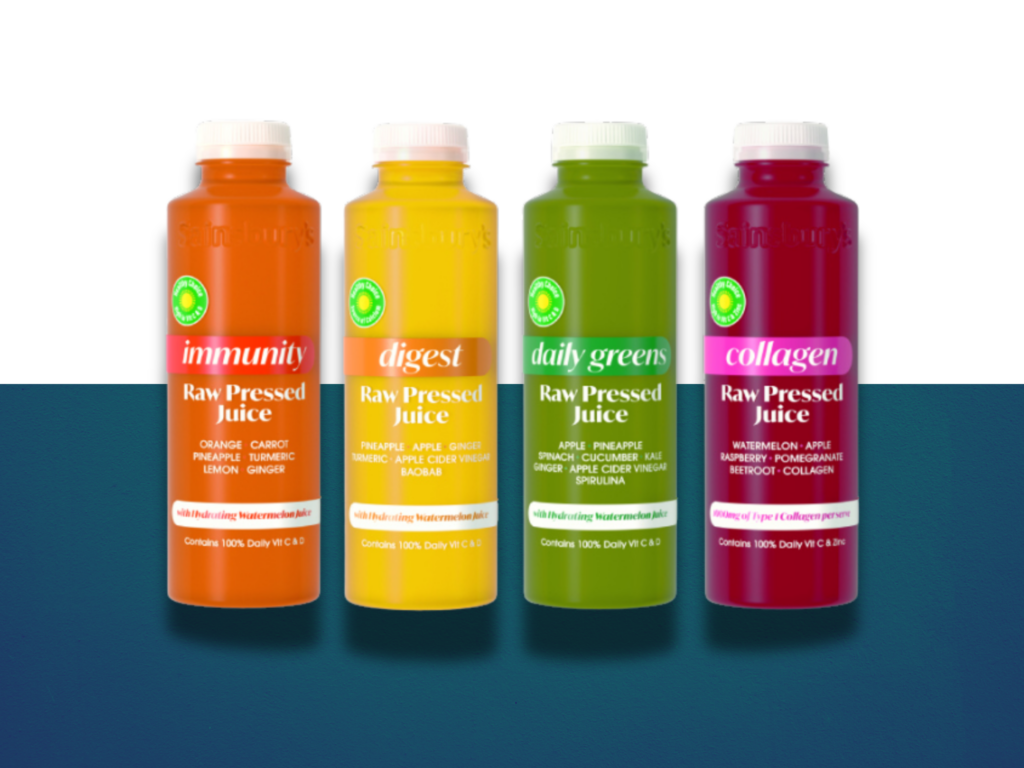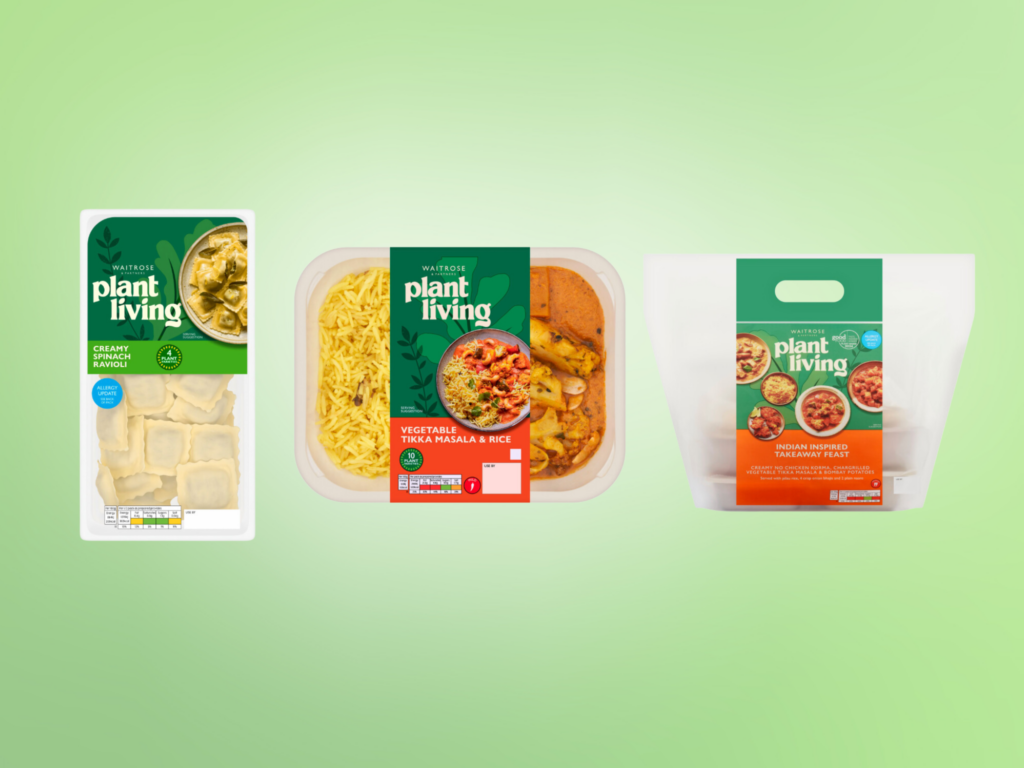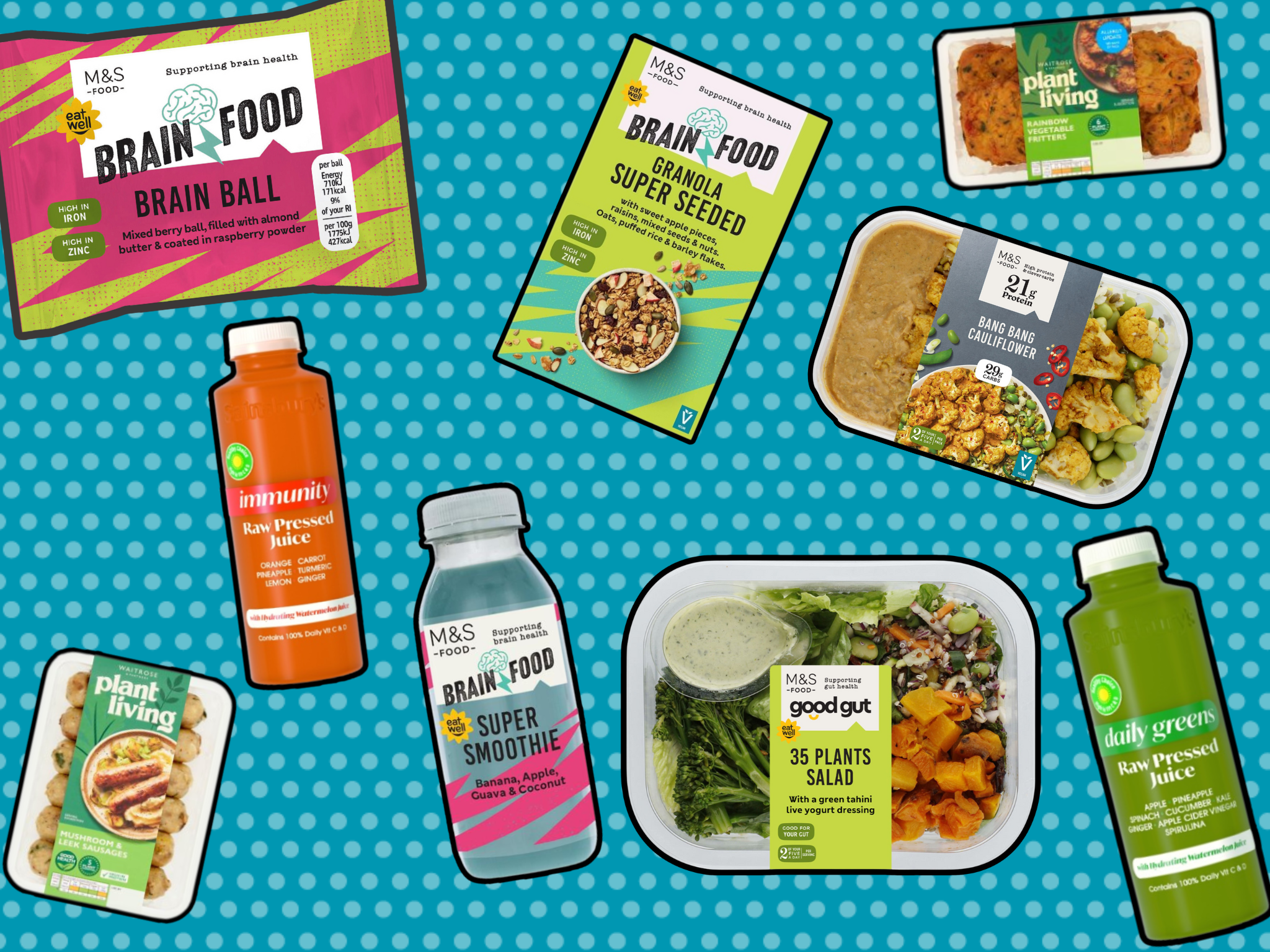Mushroom Drinks, Veg-Led Meals, Bold Labels & Gut Health: UK Supermarket Own Ranges Get Trendy
6 Mins Read
Health is a central focus for some of the UK’s largest retailers this year, as nutrition and wellness become a priority for consumers.
From gut health to brain food to ’30 plants a week’, health-forward eating is at the heart of new product development at some of the largest supermarkets in the UK this year.
In 2024, polling suggested that two-thirds of Brits believe brands have a responsibility to help people make healthier choices, and 83% feel eating healthily is a form of self-care. At the same time, they chose a billion more meat-free meals for health, amid growing concerns about ultra-processed foods (UPFs), a group that often includes plant-based meat, and is often misconstrued as a scale of nutrition.
Awareness about the gut health benefits of plants is also on the rise, thanks to personalised nutrition apps like Zoe and documentaries like Netflix’s Hack Your Health.
A December survey revealed that 90% of Brits agree that diet is an important factor in overall health, and among these consumers, 28% are likely to cut back on UPFs this year, while another 25% are looking to reduce sugar, salt and fat. At the same time, one in six is aiming to eat more sustainably.
Just as food manufacturers are responding to the Ozempic-induced gut health boom in the US, British retailers are keying into local demands for better-for-you foods this year.
Tesco targets gut health

The UK’s largest retailer has been spotlighting whole foods for a while. Fruits, vegetables, legumes, and the like drove its plant-based sales hike last year, and it introduced a meat-free Root & Soul ready meal range that put vegetables front and centre.
Tesco revealed in October that “veg-led meals” account for 40% of its plant-based sales, prompting it to go big on whole foods – rather than meat alternatives – in its vegan range for Christmas.
Its latest survey shows that gut health is a top concern for 37% of Brits this year, and 70% of them are adding more fibre to their diet to maintain a healthy microbiome. Over one in five (22%) also plan to consume more plant-based foods.
Playing into that trend and not to be outdone by microbiome-forward brands like Zoe, Tesco is reportedly launching its own gut-health-focused range this year, filing a trademark application for the name Gut Sense, covering kefir, cereal bars, nuts, vitamin-infused beverages, and supplements.
“There is no longer a ‘one size fits all’ approach to improving health and we’re seeing a new era of health that is more targeted and tailored to the individual,” Tesco nutritionist Natasha Maynard said after the latest poll. “We believe in encouraging small changes which can have a big impact and help people to stick with much healthier and more sustainable diets long term. Considering things like increasing fruit, vegetables and fibre in diets is great for our health.”
Sainsbury’s makes healthy choices easier with bold labels

Hoping to make it easier for consumers to identify healthy foods, Sainsbury’s has rolled out a new ‘Healthy Choice’ logo this month.
The neon-green label now appears on 1,300 own-label products to highlight better-for-you products, such as those high in fibre, protein, calcium or omega-3 or calcium, or those that count as one of the five a day.
This coincided with the launch of a line of raw-pressed juices and shots that use watermelon juice as a base, and will be followed by new kefir and yoghurt ranges to cater to gut wellness.
These moves are a response to the 77% of consumers who want to make their diets healthier, but lack the inspiration or time to do so, according to research by the retailer. They’re also part of Sainsbury’s push to make 85% of its sales come from healthy and better-for-you foods by 2025/26 (it’s currently at 81%).
M&S heads for the brain and gut with mushroom drinks

Mushrooms, weight loss, cognitive health, and gut wellness all inform Marks & Spencer’s new products for 2025. The high-end grocer has unveiled 100 new and updated products targeting health-conscious consumers.
“Eating healthily can be really complicated, with lots of confusing and conflicting information out there. It’s our job at M&S to help cut through the noise and focus on supporting customers and innovating in areas that matter the most to them,” said Rebecca Brown, a senior nutritionist at M&S.
In a new Brain Food range, M&S is highlighting nutrients that benefit cognitive health, such as omega-3, iodine, zinc, iron, and vitamins B9 and B12, with products like Brain Food Ball (with almond butter and mixed berries), Oat of the Blue (an oat and coconut milk refresher with spirulina, and Super Seeded Nut butter (peanut butter mixed with chia, pumpkin, sunflower and golden linseeds).
Its new Yay! Mushrooms drinks, meanwhile, were developed with scientists at the Royal Botanic Gardens, Kew, featuring lion’s mane or reishi mushrooms.
There’s also a high-protein Balanced for You range – with options like Bang Bang Cauliflower and a Chocolate Hazelnut Spread – and new offerings from its Count on Us weight-loss lineup.
And the private-label Good Gut range now has a Gut Shot in partnership with Zoe, a 35 Plants Salad, and an almond-date Gut Ball.
Waitrose counts your plants

Finally, Waitrose is honing in on the advice to eat 30 plants a week for a healthy gut – popularised by nutritionists like Tim Spector – with a new Plant Varieties logo on over 50 products, including fresh soups, snacks, cereals, and meals from its vegan PlantLiving range.
The John Lewis-owned supermarket’s research found that 46% of Brits are looking to eat 30 different plants a week, and 87% say having the number of plant varieties on labels would help them actively do so. Awareness is an issue here – people often don’t realise that items like coffee, dark chocolate and spices also count.
“Whether it’s mixing more different herbs and spices into your meals, snacking on mixed nuts or adding lentils into your bolognese sauce, there are lots of ways to reach 30 plants. The new logo is a great way to teach customers about plants in food and how to integrate more variety into the diet,” said Dr Joanne Lunn, lead nutritionist at Waitrose.
The supermarket has committed to increasing the volume of fruits, vegetables and protein sold by 10%, as well as fibre sales from key categories by 25% by 2030.
The move means meals like its Vegetable Tikka Masala & Rice will have a label showing it has 10 plants, as would its crunchy vegetable crispbakes. The label will be extended to more products later in the year.
“Adding the plant varieties logo to our products takes the brain power away from adding variety to your diet and eating well and brings the focus back to delicious meals – which we know is so important for our customers,” said Maddy Wilson, director of own-brand at Waitrose.



